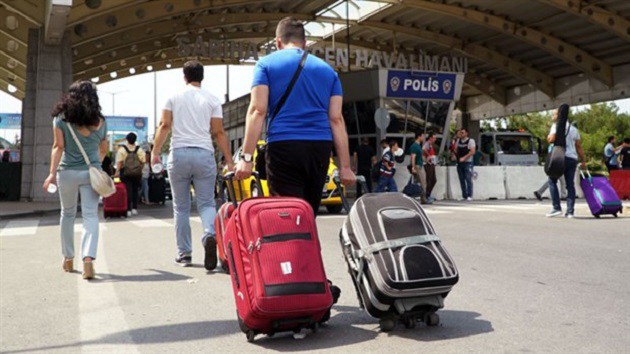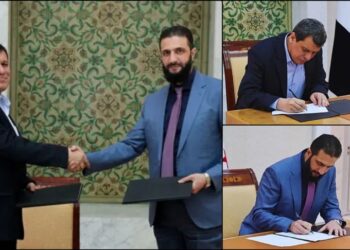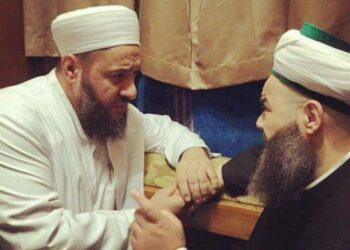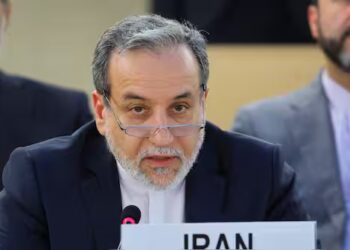Turkey has not been able to solve its Kurdish problem yet. The expectations and demands of Kurds force the Turkish establishment to rethink the exclusive nature of citizenship based on ethnic preference (of Turks), the primacy of state over society, the law that protects the officialdom from the people and a clientele economy with limited transparency.
These all have to change if a democratic, transparent and accountable system, guaranteed by the rule of law, is adopted. That is why reforms are stalled and the pace of democratization is slow. Stately powers of the old tutelary system allow power holders to be modern-day kings. Whoever comes to power through elections or otherwise does not want to let go of these powers and privileges. This system is the womb of many problems. The gangrened Kurdish problem is only one of them.
While this is the case, another Kurdish problem is surfacing across the border in Syria. The Syrian dictatorship is slowly being dismantled. Kurds in this country are becoming more visible and rising to be one of the major political actors. They will be more so in the post-Assad period.
Kurds are the largest minority group in Syria, as they are in Turkey. But they have been systematically subjected to government oppression in order to keep them away from being an effective political actor.
Systematic repression has marginalized and divided the Kurds of Syria. Today, they are hesitant in choosing a side. They do not trust the Assad government that tries to woo them, now itself under duress. They do not trust the opposition dominated by the Muslim Brotherhood and Arab nationalists supported by Turkey that itself has an unsettled score with Kurds.
Until a decade ago, the Syrian government allowed the Kurdistan Workers’ Party (PKK) to recruit and to utilize the Kurds of the country against Turkey while the Turkish-Syrian conflict prevailed, but they were kept mute inside Syria. Bashar’s father, Hafez al-Assad, did not hesitate to engage Syrian Kurds in the internal politics of Iraq while he rendered them apolitical in Syria.
This policy worked, and no effective Kurdish movement and no effective opposition emerged in Syria for a long time. However, important changes have taken place in recent years. The US invasion of Iraq in 2003, the formation of the Kurdish Regional Government in Iraq (virtually an independent mini-state) and Syria’s loss of face and influence in Lebanon due to its alleged involvement with this country’s former Prime Minister Rafiq Hariri all had a combined effect on the weakening of the Syrian regime at the regional level.
In this atmosphere, Kurds rioted in Qamishli in 2004, a township close to the Turkish border, and in Aleppo. Needless to say, the Syrian government acted harshly. But there was a visible transformation in the Arab world that later ushered in the Arab Spring. The Syrian government did not want the Kurds to beef up the ranks of the opposition that would further undermine its legitimacy. So the official policy to keep the Kurds neutral led the government to offer them rights heretofore denied, such as citizenship and allowing the celebration of Nevruz (the Kurdish New Year) with fanfare. Some officials even participated in the festivities as a sign of good will on the part of the government.
Having suffered so long from the repression and brutality of the government, Syrian Kurds saw these moves simply as acts of survival of the government. Yet they do not know for how long the government will persist. That is why they do not want to take part in the opposition organized under the roof of the Syrian National Council (SNC). Syrian Kurds are complaining that the organization is dominated by Arab nationalists and the Muslim Brotherhood. They find it hard to find a foothold in the council, which is under Turkish influence, and feel that they will have a limited effect on the post-Assad restoration. This makes them all the more hesitant to take part in the SNC.
Yet while Syrian Kurds know that they cannot seek separation, they want to make sure they gain ethnic recognition, cultural rights and legal-political equality, either now or during the restoration of the post-Assad Syria. However, they do not hide the fact that an ideal arrangement for them would be a federal system of which they would enjoy being a part.






















